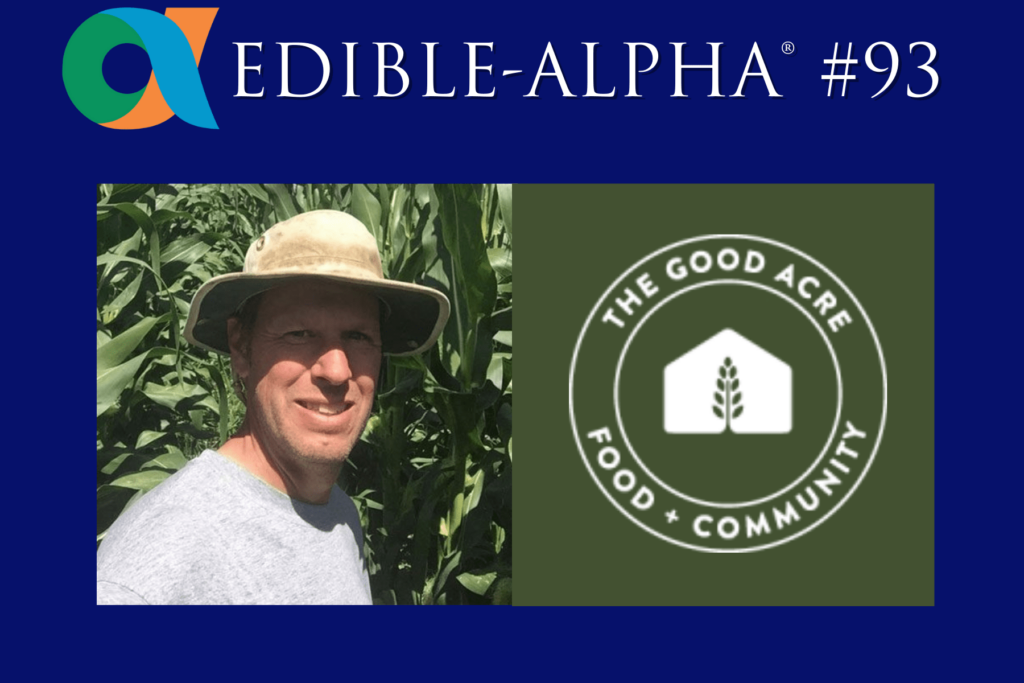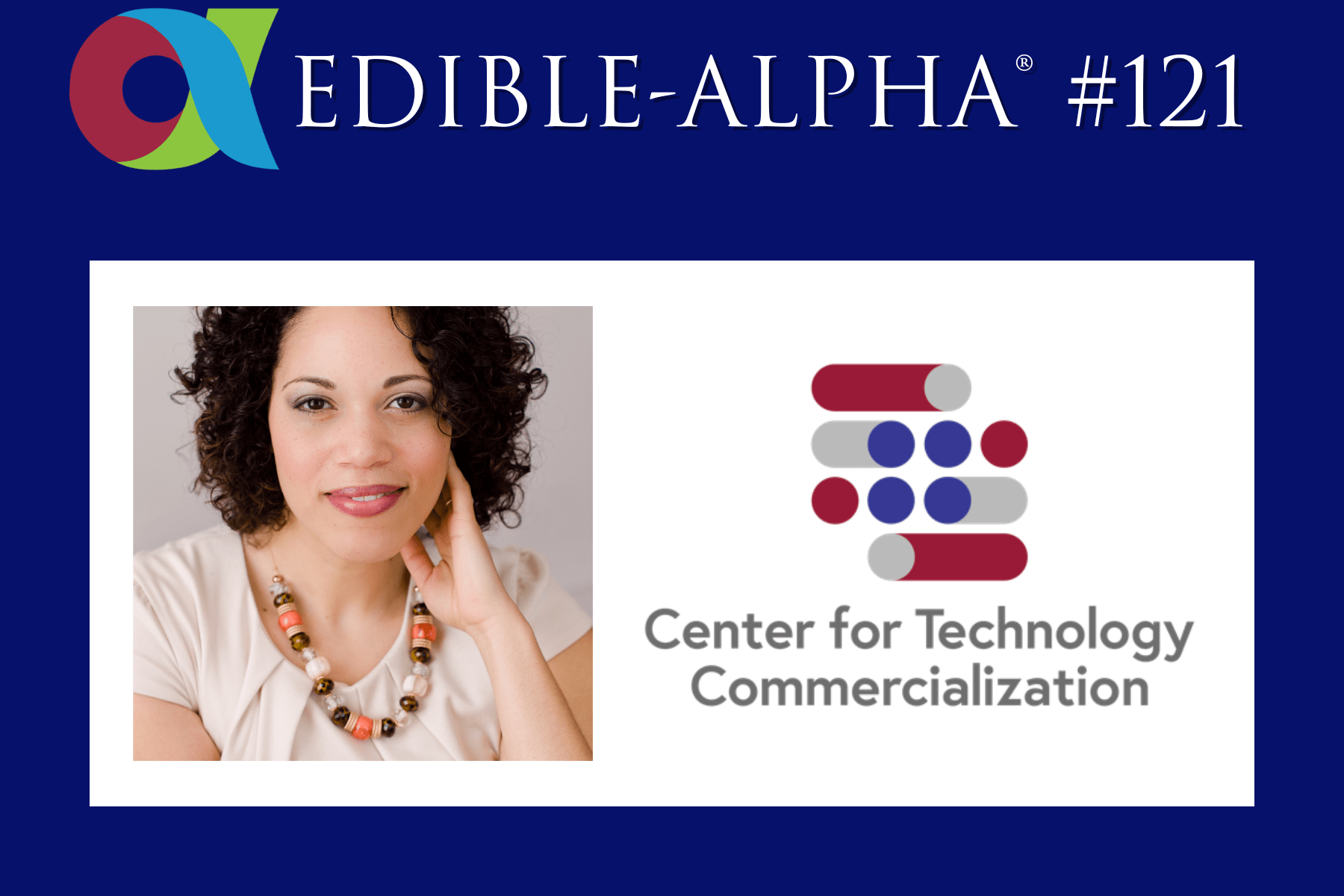Subscribe: Apple Podcasts | Spotify | Amazon Music | iHeartRadio | RSS | More
In Edible-Alpha® podcast #93, Tera interviews David Van Eeckhout, farm program director at The Good Acre in Falcon Heights, Minnesota. The nonprofit food hub provides diverse, small farmers and food makers around the Twin Cities with the resources and infrastructure they need to run successful businesses.
Founded in fall 2015, The Good Acre is headquartered in what David calls a “Swiss Army Knife facility,” complete with warehouse space, cold storage, a classroom and a commercial kitchen. Though the initial focus and funding were around farm-to-school wholesale, the organization has evolved and broadened its scope. The Good Acre offers a farm share program, which is similar to community-supported agriculture (CSA) but sources its produce from multiple small farmers. Additionally, it offers school culinary training and hosts a dozen local food makers in its kitchen space.
Last year, in response to the COVID-19 pandemic, The Good Acre pivoted its focus to hunger relief. Working with other local organizations, David spearheaded the Local Emergency Assistance Farmer Fund (LEAFF) to help farmers of color through the uncertain time while also addressing food insecurity around the Twin Cities. Last year, LEAFF enrolled 47 diverse farmers, many of them Hmong, and purchased $7,500 in produce from each. The majority of donations went to the students and families of three Hmong charter schools, bringing The Good Acre’s original farm-to-school mission full circle. LEAFF will continue, but its long-term survival hinges on ongoing financial support.
The Good Acre also forged an important relationship with Second Harvest Heartland during the pandemic. The food bank had secured funding to support BIPOC farmers, and The Good Acre insisted that it pay a fair price for their produce. “Second Harvest ponied up, and we were able to move a lot of produce for them,” David says. “By November, there was no more produce from farmers of color to be found in the Twin Cities, which was wonderful.” The Good Acre continued advocating for these farmers, next convincing Second Harvest to commit to buying not one but three season’s worth of produce.
David says LEAFF offers farmers a flexible entryway to wholesale while Second Harvest contracts are a solid next step. Both programs, along with The Good Acre’s farm share, help fill gaps in the supply chain by aggregating food into large enough volumes to market and by building markets for producers who would struggle to build them on their own.
Next, David discusses his boots-on-the-ground work with farmers. He visits multiple farms each week to build relationships, generate trust and offer production-related assistance around fertility, irrigation, pests, crop disease and navigating the effects of climate change. He also helps break down language and cultural barriers and connects growers to resources that many couldn’t otherwise access easily. Looking ahead, David is excited about continuing The Good Acre’s hunger relief work and cultivating deeper relationships with small farmers, especially those of color.

